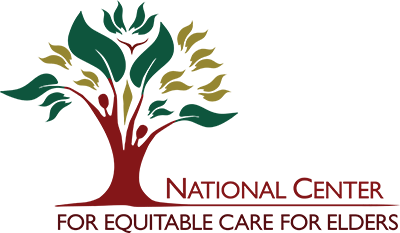About
To improve health equity, it is important that Health Centers can access and address the social needs of the most vulnerable, especially older adults. Health centers can do this by performing an environmental scan around enabling or support services targeted at SDOH for older adults with co-morbid chronic diseases.
NCECE hosted a four-session Learning Collaborative to develop/conduct an environmental scan around enabling or support services targeted at SDOH for older adults with co-morbid chronic diseases. The focus was on patients aging in place and nursing homes.
Session Topics and Objectives
The four sessions covered a variety of topics and objectives, including:
Session 1: Why older adults’ health is largely determined by where they live and what type of supports are available to them
- Review evidence of how the social environment impacts health (SDOH)
- Identify the challenges facing older adults with multiple chronic conditions (MCC)— focus on the home and community environment
- Identify targets for improving services for patients in their home/community environment
- Participants begin identifying things that can be changed in their health centers to improve their understanding and reach into patients’ home environment
Session 2: Health behavior theories and identifying outcome measures
- Discuss ecological theory in the context of participating health centers
- Apply established health behavior theories to older patients with multiple chronic conditions
- Discuss approaches to environmental scans of patients’ home and community environments
- Identify quantitative and qualitative measures of older patient’s functioning in their home and community environment (for use in a future environmental scan)
Session 3: Identifying points of intervention in the older patients’ home and community
- Discuss the use of inter-professional healthcare teams to assess and address the needs of older patients with MCC
- Identify community-based and technological resources and support services that might supplement the capacity of health centers into the home and community of older adults with MCC
- Learn how to conduct an environmental scan to identify points of intervention to support patients using health center and community-based resources to do so
- Discuss approaches to measuring the outcome of support interventions with both qualitative and quantitative
Session 4: Tailoring social supports for individual patients/future planning
- Consult with the LC on past use, or future planning for an environmental scan to identify how a home or community-based support service will enhance the health and well-being of at least one current patient
- Identify the target service(s), how they will be provided, and the expected outcome of those services (how the patient will benefit)
- Identify what, how, and who will measure the identified outcome(s) using both quantitative and qualitative measures
- Learn how to measure and record the targeted outcomes before and after the services have been provided
Request Access to Resources
Registered participants: Email us to access materials for each of the sessions.
Interested in accessing materials from this learning collaborative but you're not affiliated with a HRSA-funded health center or look-alike? Contact us with information about your organization and intended use of our materials.
